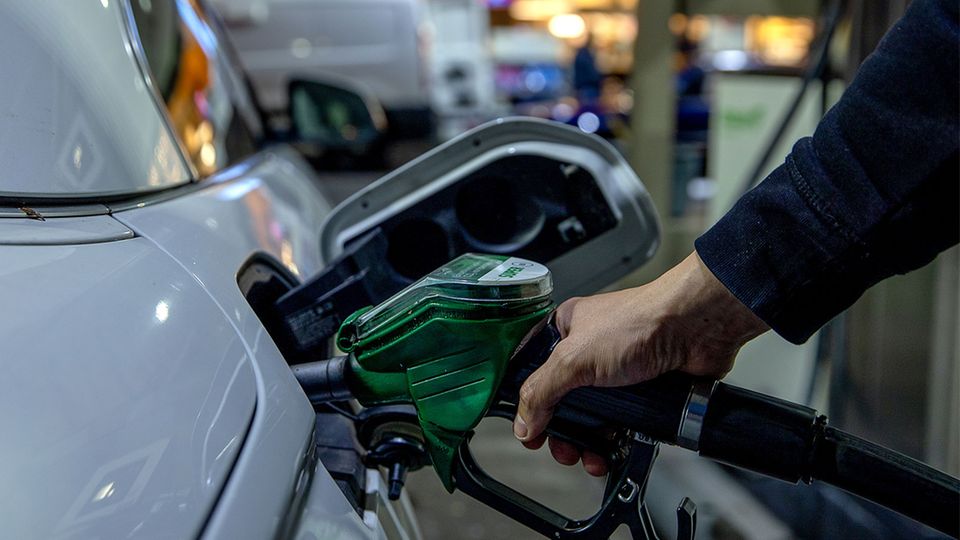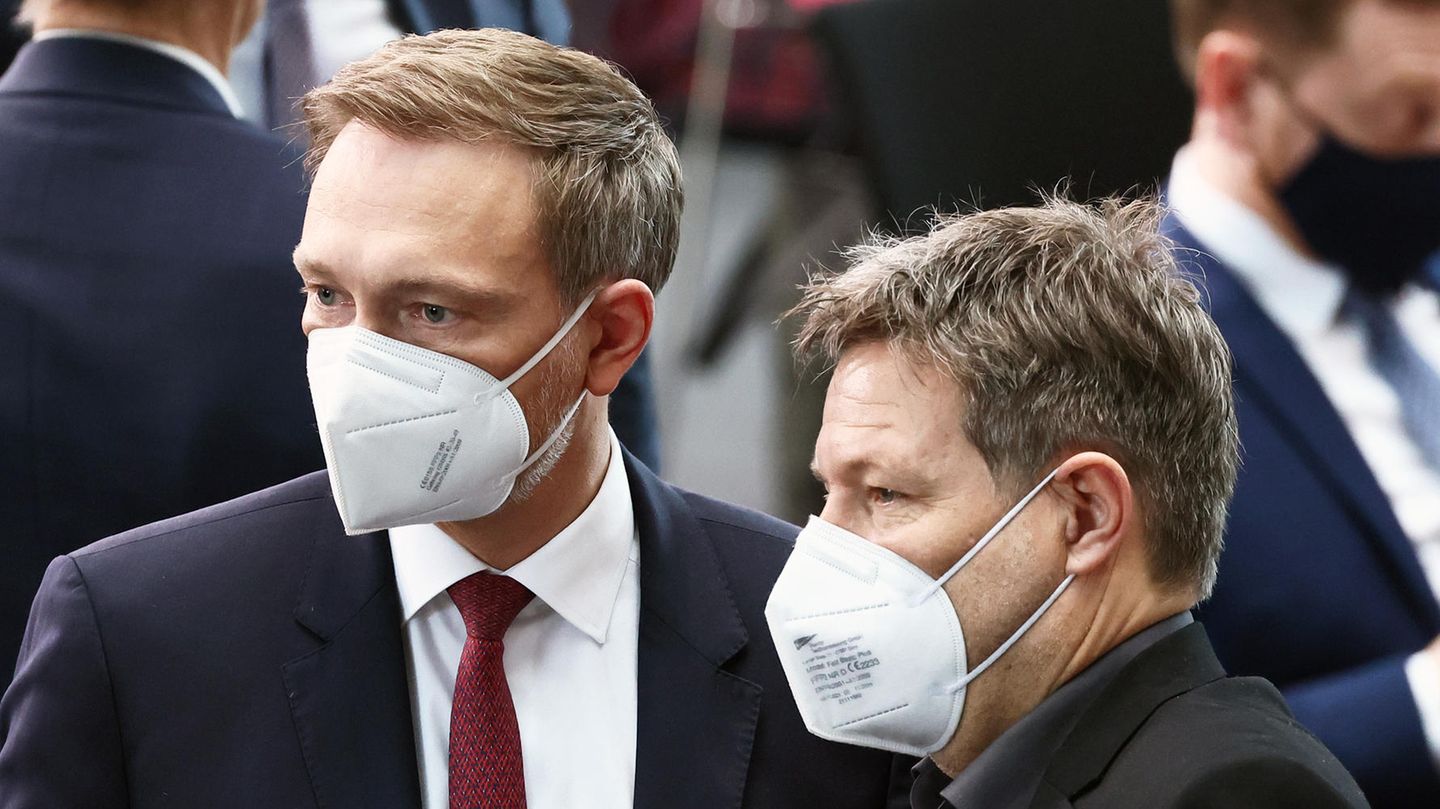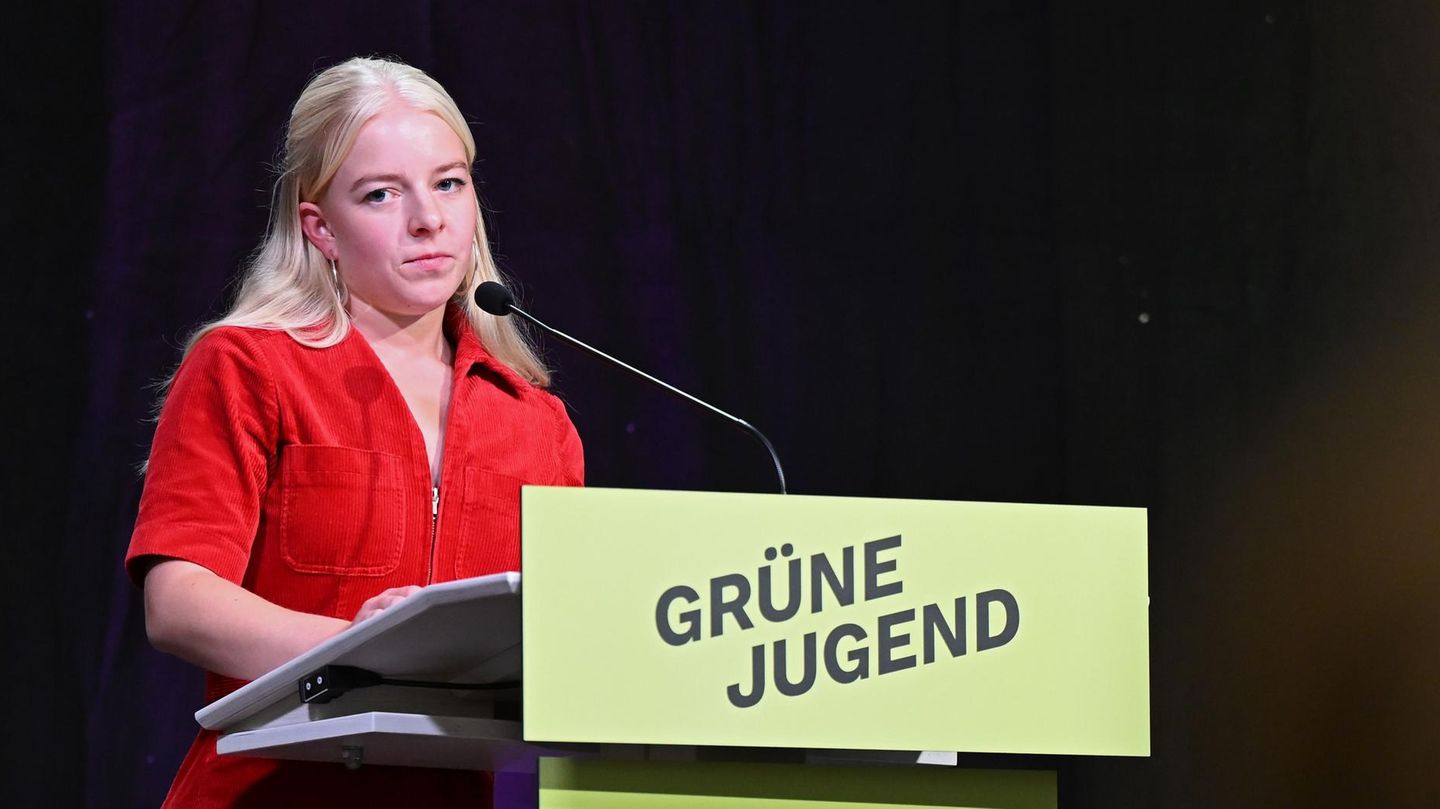Gasoline prices are fueling the debate about how drivers can be relieved. While Finance Minister Christian Lindner (FDP) is defending his fuel price brake against criticism, Economics Minister Habeck and the Greens have more far-reaching plans.
Anyone who drives their car to a gas station in Germany at the moment will either turn pale or reddened in anger in the face of the gas prices. At well over two euros per liter, fuel prices are currently at an unprecedented level after skyrocketing in the first two weeks of the Ukraine war – in some cases by more than 10 cents a day. That is why the traffic light coalition is planning relief for drivers in Germany. However, it is not yet clear exactly what the relief will look like. However, there is agreement that relief should be provided.
Federal Finance Minister Christian Lindner (FDP) therefore said on Monday evening when asked how high he saw the chances of a petrol price brake: “High”. Families, commuters and tradespeople should not be left alone with the rapidly rising prices: “This is not the only relief measure that we need, but it is an important and urgent one.”
Lindner had previously given details. For example, the state subsidy could be paid out for a limited period of three months, which would cost more than six billion euros. However, the specific structure is still open in the government: “But you can calculate 550 million euros per 10 cents and month. 40 cents for three months, for example, would be 6.6 billion euros”, .
Habeck has other plans than Lindner
Economics Minister and Vice Chancellor Robert Habeck (Greens) also announced a package of measures. “Extremely high heating costs, extremely high electricity prices, extremely high fuel prices put a strain on households, and the lower the income, the more,” said Habeck. “The federal government will therefore launch another relief package.” Among other things, there should be simplifications for electricity, heat and mobility. “It is precisely the high heating costs that are overwhelming many families.” The Federal Ministry of Economics estimates that the gas bill for an average family in an unrenovated one-family house will increase by around 2,000 euros in the current year.
Second, Habeck is aiming for energy efficiency and savings – such as reducing consumption when driving or replacing gas heaters. Thirdly, further market-based impulses are necessary, so that the following applies: “the more efficient, the lower the costs”. Lindner’s proposal for a tank subsidy falls short, said Habeck.
Lindner counters criticism of the fuel price brake
Lindner rejected criticism from the Greens and from the mineral oil industry that the model would involve a huge amount of bureaucracy because each gas station had to submit each receipt individually. “Not every fuel receipt should be managed individually. That would be absurd.” For example, gas station chains should be able to apply for reimbursement from the state based on the total amount of fuel sold. “If it’s up to me, we’ll end up with the tank discount at less than two euros per liter of diesel and petrol. Of course, the whole thing is only temporary.” With a relief of ten cents, Lindner assumes costs of 550 million euros per month. However, it is clear that ten cents and a month’s relief are not enough, and the measure will be correspondingly more expensive.
In the “daily topics” Lindner said, “I think we can still do something about heating oil”. But rising world market prices cannot be subsidized with tax money in the long run. The point is to develop other sources of energy and expand renewable energies. “And we also have to re-examine certain provisions of the traffic light coalition agreement.”
Klingbeil praises and warns
SPD chairman Lars Klingbeil said it was “right that the finance minister is thinking about it” on RTL/ntv. Such proposals would have to be thought through wisely in the government. He was “careful now about discussing individual instruments,” but it shouldn’t be put off, said Klingbeil: “We need concrete agreements this week, and we’re working on that at full speed.”

dpa
According to Habeck’s State Secretary Oliver Krischer, the Greens would like to impose a speed limit to reduce fuel consumption. A temporary speed limit of 100 km/h on motorways would save two million tons of fuel per year, around two percent of German mineral oil imports. Apparently, Lindner thinks little of it: “In view of the high fuel prices, there is a natural impulse to consume less,” he said, according to the magazine. Motorists could also take their foot off the accelerator pedal of their own accord.
So far, fuel prices have not slowed down motorists
So far, motorists in Germany have not slowed down despite the jump in fuel costs. So far, no reduction in speeds has been observed on motorways, according to evaluations by the traffic data providers Inrix and TomTom for the German Press Agency.
Other sources: (paid content), , .
Source: Stern
David William is a talented author who has made a name for himself in the world of writing. He is a professional author who writes on a wide range of topics, from general interest to opinion news. David is currently working as a writer at 24 hours worlds where he brings his unique perspective and in-depth research to his articles, making them both informative and engaging.




